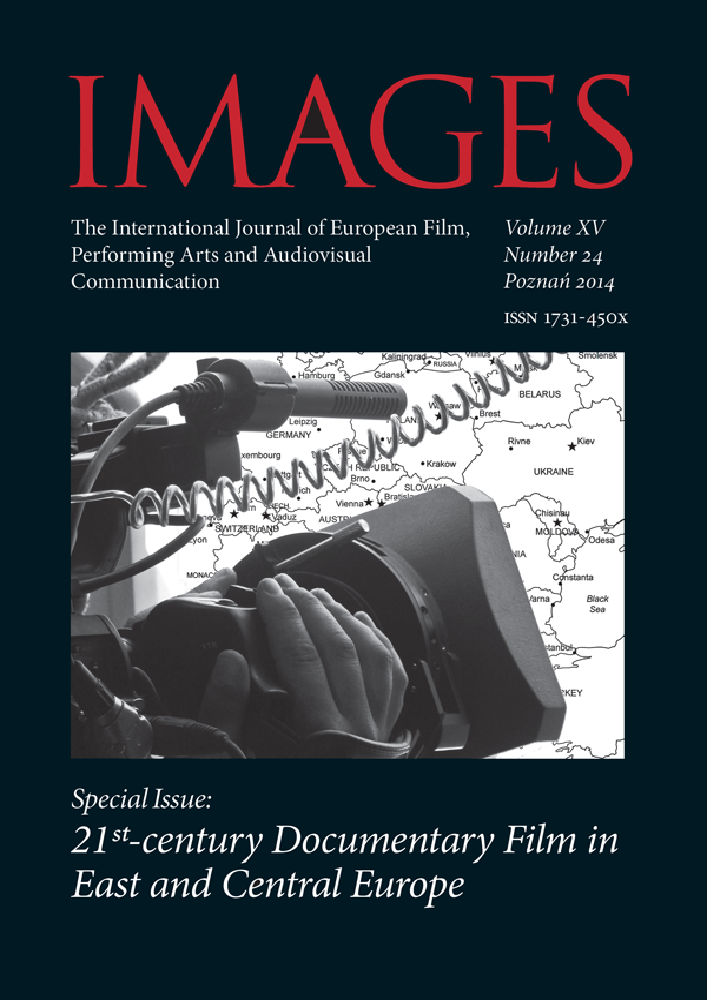Abstrakt
Katarzyna Citkos article is an analysis of Dagmara Drzazga’s film Bez jednego drzewa las lasem zostanie (Without One Tree, a Forest Will Stay a Forest, 2012), an example of a religious and historical documentary. The article describes the film’s depiction of the tragic fate of Jan Macha, a priest who during the Nazi occupation of Poland organized help for victims of German oppression as a co-founder of the Scout organization Konwalia (Lilly). For his work, he was arrested and executed in a prison in Katowice by means of a guillotine that was installed there in 1941. The article also analyses film-making techniques characteristic to documentaries, as well as the specific forms of expression which situate Drzazga’s work in the realm of religious cinema. These documentary techniques include combining photos and archival documentaries, interviews with people who knew Macha, and the opinions of experts, such as historians, clergymen and journalists. Other interesting techniques employed by the director make it possible to describe the film as belonging to religious cinema of the transcendental style, as described by Paul Schrader, which abandons unnecessary suspense in favour of poetic images; focuses on the dynamics and drama of the events rather than an in-depth psychological analysis of characters’ motivations; interweaves first- and third-person narration, which is carried out by means of both voice-over and by people speaking in the film; uses suggestive image editing combined with music which employs the theme of Agnus Dei. All of these features helped Drzazga’s interesting and thought-provoking film win a number of awards at international Catholic film festivals.
Bibliografia
Dagmara Drzazga’s film Without One Tree, a Forest Will Stay a Forest (2011).
M. Sokołowski, Kościół, kino, sacrum. W poszukiwaniu filmów o tematyce religijnej [The Church, Cinema, and the Sacred. In Search of Films on Religious Subjects], Kastalia, Olsztyn 2002.
Światowa encyklopedia filmu religijnego [World Encyclopaedia of Religious Film], eds. M. Lis, A. Garbicz, Biały Kruk, Kraków 2007.
A. Ayfre, Dieu au cinéma, Problèmes esthétiques du film religieux, Presses universitaires de France, Toulouse 1953.
M. Marczak, Poetyka filmu religijnego [Poetics of Religious Cinema], Arcana, Kraków 2000.
P. Schrader, Transcendental Style In Film: Ozu, Bresson, Dreyer, Cambridge, Massachusetts 1972.
Poszukiwanie i degradowanie sacrum w kinie [The Search for and Degradation of the Sacred in Cinema], eds. M. Przylipiak, K. Kornacki, Wydaw. Uniwersytetu Gdańskiego, Gdańsk 2002.
Ukryta religijność kina [The Hidden Religiousness of Cinema], ed. M. Lis, Redakcja Wydawnictw WT UO, Opole 2002.
Kwartalnik Filmowy 2004, no. 45 (The Sacred in Film), Studia Filmoznawcze 2004, no. 25 (Religion and Film).
W. Kawecki, J.S. Wojciechowski, D. Żukowska-Gardzińska, Kultura wizualna – teologia wizualna, [Visual Culture – Visual Theology], Instytut Papieża Jana Pawła II : Instytut Wiedzy o Kulturze UKSW, Warszawa 2011.
M. Przylipiak, Poetyka kina dokumentalnego [The Poetics of Documentary Films], Wydaw. Uniwersytetu Gdańskiego, Gdańsk 2004, pp. 49–50.
Licencja
Copyright
© 2014 Uniwersytet im. Adama Mickiewicza w Poznaniu
OPEN ACCESS
